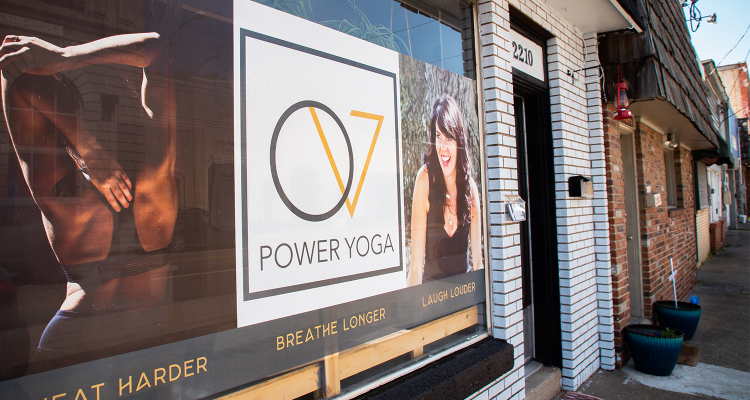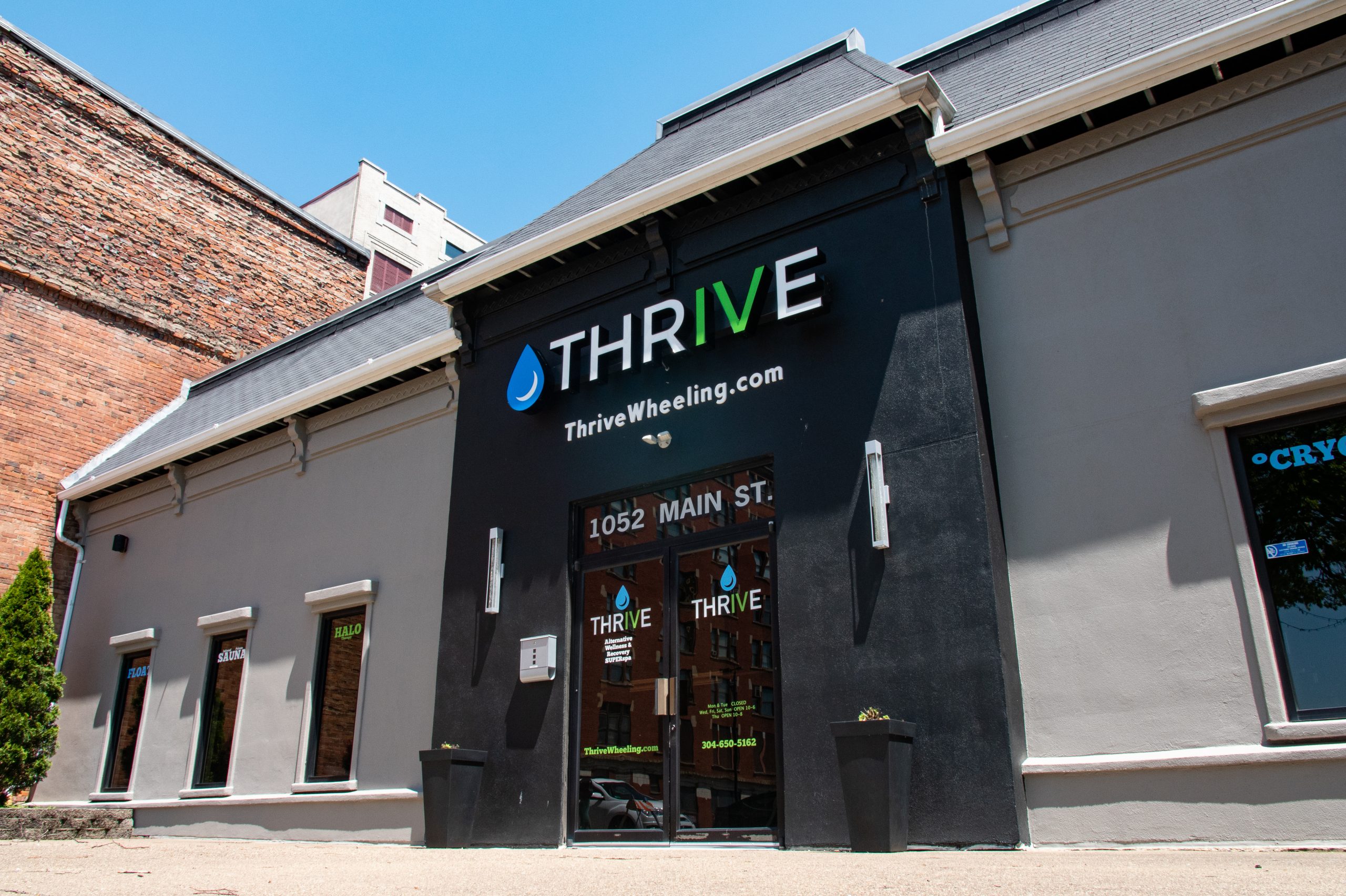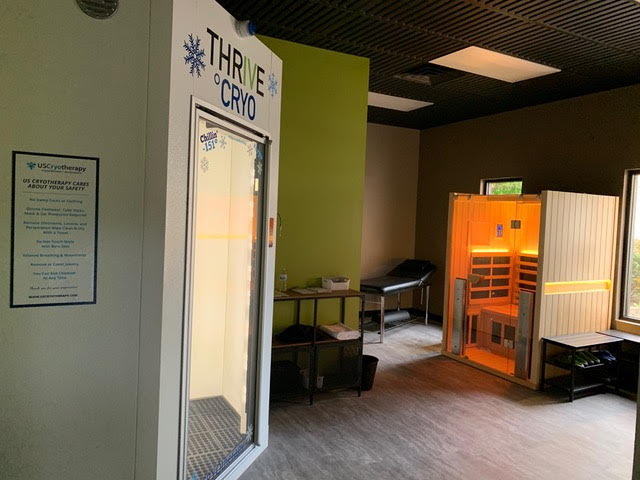As West Virginia reopens from a COVID-19 shutdown that began in mid-March, three area businesses gave Weelunk a peek at their alternately perplexing and feisty path back.
A quick look: Flipping the door sign to “open” and breaking out the bleach may be what immediately comes to readers’ minds. But, these entrepreneurs shared tales of searching for oddball supplies like no-touch infrared thermometers, trying to figure out if a float tank filled with salt water is a “pool” and finding new paths to personal and entrepreneurial namaste through a video app.
“There are a ton of moving parts that look really messy behind the scenes,” said Laura Hitchman, the Millennial force behind OV Power Yoga of Elm Grove. “But, it’s now or never. It’s make it or break it. I’ve got what I’ve got, so here I go.”
She’s not alone in that sentiment.
Read on to learn more about how Hitchman and the entrepreneurs at Frederick’s Day Spa Salon in Woodsdale/Edgwood and ThrIVe Wheeling alternative wellness spa in the downtown are making it happen.
DEEP (GRAY) ROOTS
When W.Va. Gov. Jim Justice began signaling that hair salons would soon reopen, things went a bit wild at Frederick’s Day Spa Salon. It was all about roots, the gray ones sprouting from many clients’ heads, according to Sharon DeChiazza, who co-owns the nearly 30-year-old business with husband Fred DeChiazza.
“The phones were like a telethon,” Fred DeChiazza said of appointment making. “It was nonstop, putting people on hold with all four lines going.”
They said the family business — whose 30 employees include their two daughters — was booked solidly with hair and nail appointments for the first two weeks and was nearly full for a third week at the time of this interview.
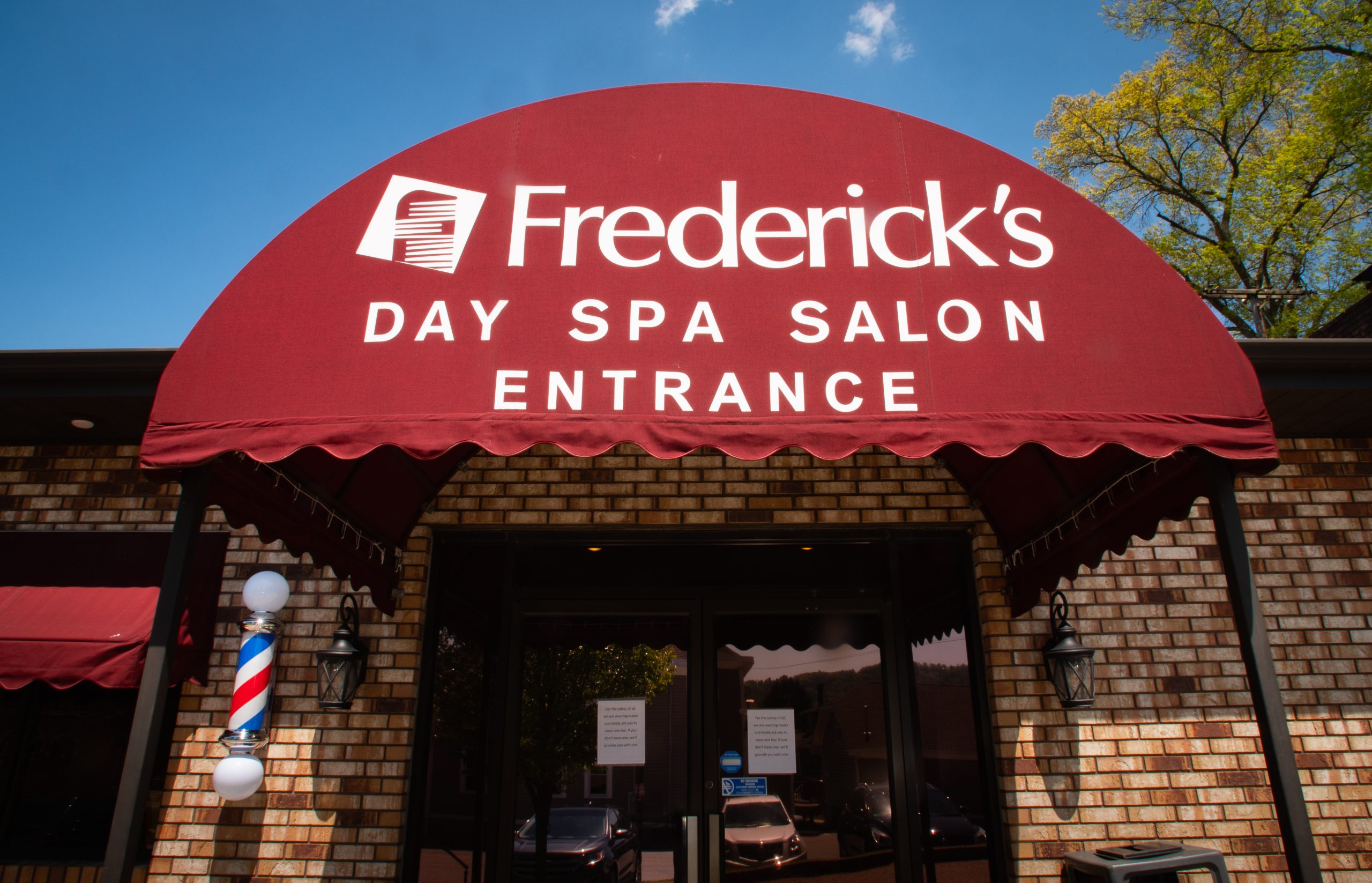
“A lot of media is thinking, ‘Will people want to come?’ They want to come,” Fred DeChiazza noted.
Yet, for all the interest, their actual reopening date was a moving target.
First — after four weeks of total closure, then a couple of weeks selling CBD products and gift cards at curbside — they began booking appointments. This was in anticipation of a state green light on salons that didn’t come as early as they expected. This led to a flurry of appointment changes.
Then, they could not locate a no-touch infrared thermometer. The device — far from the normal equipment found in a salon but part of the state’s reopening guidelines — was tricky to purchase given the general COVID-19 pandemic. That simple lack delayed their opening from May 4, the earliest day for salons, to May 12.
“We’ve never experienced anything like this — we never thought we would,” Fred DeChiazza said of such difficulties being beyond his family’s multi-generational experience. “It’s been a juggling act.”
How much so became apparent again when staff gathered to spruce up their own appearances before the reopening. The couple were shocked to see their staff — most of whom are under age 30 — touching, trying to rinse out coloring equipment in the same sinks and otherwise not social distancing.
“I was expecting them to be a little bit more worried,” said Fred DeChiazza, who has decided to manage the store from a home office as he falls into a higher risk category for virus complications.
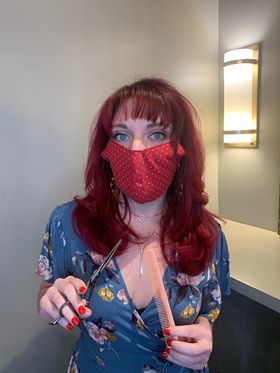
Sharon DeChiazza, who described that practice run as “herding cats,” was pragmatic, though. As the rollout happened a few days later, stylists and nail technicians fell into a new normal in which customers wait in their vehicles until called and have their temperature taken on entry, workers wear masks at all times and the same are offered to clients, stations are disinfected for 15 minutes between clients, and spa perks like fancy coffees are taboo.
Workers (and the overall business) will also see a drop in some income, the couple noted. Spa services such as massage are still shuttered for now. And, while hair and nails are fair game, stylists can only serve one customer at a time. Prior to COVID, a stylist doing a color treatment, for example, often maximized income by scheduling hair trims for gap times in that lengthier procedure.
Staff effectively corralled, Sharon DeChiazza said customer reaction to the changes was mixed in the first couple days of operation. “Some are put out with all this craziness, and others want to know every precaution we are taking.”
Considering those in the latter category, Fred DeChiazza said he would prefer older and higher-risk clients to follow his example.
“I’m keeping my distance,” he said of working from home and monitoring what’s happening with the local infection rate as the overall reopening unfolds. “I feel older clients should not rush in yet. Let’s see what happens in two weeks.”
SURVIVE OR THRIVE?
Jessica Barclay, who co-owns an alternative wellness spa with Vanessa Craig, is thinking the same way as the DeChiazzas. It’s better to err on the side of safety.
ThrIVe Wheeling shut down about a week before the gubernatorial order came through. “We sensed what was coming,” Barclay said, noting that businesses like spas and salons are tricky by the very nature of their services. “We’re not high touch like massage, but we’re really interactive.”
At ThrIVe’s downtown location — which opened in 2019 — varied services include infrared saunas, hydration and nutritional supplements that are delivered intravenously, cryo treatments in a chamber cooled to -151 degrees F and float pods filled with salt water.
Barclay said she and Craig are evaluating each service prior to a tentative May 20 reopening, both trying to figure out what is legal and what is realistically doable.
For example, the float pods could be considered a type of “pool,” the likes of which remain closed by state order. Rather than run into trouble with the state or, worse, risk infecting clients, Barclay said the pods will remain closed until further notice.
And, even though the needle-use component of the business is managed by a nurse practitioner using the same “universal precautions” found in a medical establishment, Barclay said the transmission nature of COVID-19 is a game changer.
“The respiratory practices — that’s a whole new level,” Barclay said, noting the business already had the capacity to use ultraviolet light for some disinfecting and is now learning more about air-exchange issues. “We’re in new times. … Best practices from the past are not best practices moving forward. We’re just having to shift.”
And, shift again.
Barclay and Craig also own Play N Stay pet camps in St. Clairsville, Ohio, (since 2006) and Elm Grove (since 2012). These “essential” businesses were voluntarily shuttered for COVID, but have since had a staggered reopening.
“The trickiest part has been having businesses in both states,” Barclay said. She added that regulations have been constantly changing, even with their “essential” dog boarding service. At times, they can do some things at one place and not in the other, but that can flip — and has.
Such regulation changes — along with changes in customers’ needs and risk tolerance — plays out economically, Barclay said. Sometimes, the impact is counterintuitive.
“In dog daycare, it is harder to operate with 10 dogs than to have zero dogs and be closed,” she said of the reality of worker wages and the cost of keeping the building open. With ThrIVe, she is wondering if they will be able to offer enough services to turn a profit. This was putting the May 20 relaunch in question as recently as mid-May.
Among the three business locations, they employ about 40 people. The staggered reopening will bring about 15 back, Barclay said.
These things considered, Barclay said she and Craig have the business chops to weather the COVID storm.
“There’s no part of me that thinks we’re going to close forever,” Barclay said of ThrIVe in particular. “Even if the date has to shift, we’re coming back and we’re coming back strong. We can’t wait to see everyone.”
A FRESH, FRESH START
Ironically, a lack of such business experience may be helping entrepreneurial newcomer Laura Hitchman, owner of OV Power Yoga of Elm Grove.
Open since only late 2018, Hitchman said COVID has forced her to invest more finances, time and tech. She suspects that will be a good thing given trends already in play in the pre-COVID yoga industry.
“We started an Instagram stream about two or three days after I closed,” Hitchman said of coming back almost instantly from a March 17 shutdown of her studio.
There was a learning curve. Instagram didn’t do what Hitchman needed. She tried Zoom and Facebook Live before deciding on a software designed with salons and studios in mind.
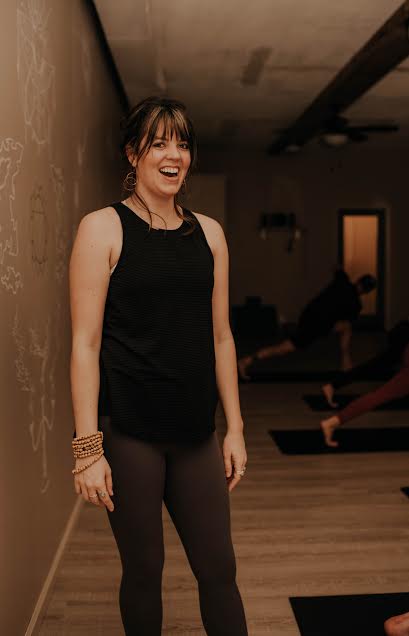
So, while other “non-essential” businesses were shuttered, OV Power Yoga’s revenue stream kept plugging along. Clients signed up and paid for virtual classes on her website. She taught in her studio, connecting to clients with audio and video.
When the state allowed her studio to reopen in mid-May, the classes simply moved to a hybrid of onsite (no more than six allowed per class) and (an unlimited number of) virtual attendees.
“I talk to people. I ask how they are doing. I introduce people to each other,” Hitchman said of starting each class at a set time and with a focus on both community and accountability to the practice of yoga. “We’re really trying to make that connection full circuit.”
Hitchman, the youngest of the business owners interviewed, said she resisted the very idea of closure at first. She later decided that keeping the world community healthier was more compatible with her life philosophy than maintaining a bricks and mortar presence at any cost.
Not to say it was easy.
“Trying to figure out how to move my business from bricks and mortar to 100 percent online was daunting.”
She was in Florida when she realized closure was imminent and initially felt panic. While online clients are a growing trend in the industry, an initial investigation into offering such a service felt overwhelming when she first considered it in summer 2019.
“It’s amazing when you’re under pressure,” Hitchman said of taking the full online plunge in 2020. “The adrenaline, that laser focus that happens. … As I got into the switch, I got kind of excited.”
While live clients are now showing up for each of the 15 classes she and a handful of part-time instructors teach each week, Hitchman suspects her OV Power Yoga will continue to include an online component even when COVID restrictions are gone. She will simply gauge demand as she goes along.
“It’s (COVID) definitely helped me look into new directions as to how I want my business to grow,” Hitchman said. “This has helped me let the walls come down. I’ve gotten a lot braver.”
• A long-time journalist, Nora Edinger also blogs at noraedinger.com and Facebook and writes books. Her Christian chick lit and faith-related non-fiction are available on Amazon. She lives in Wheeling, where she is part of a three-generation, two-species household.


